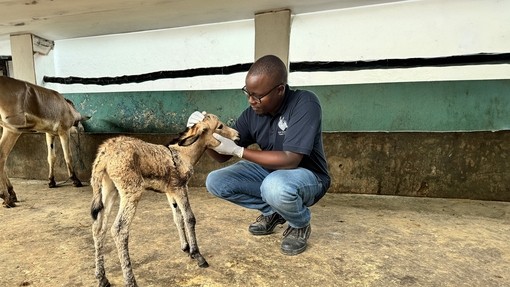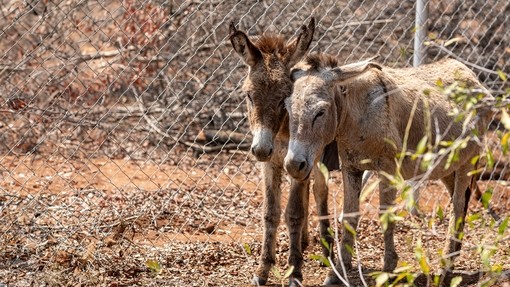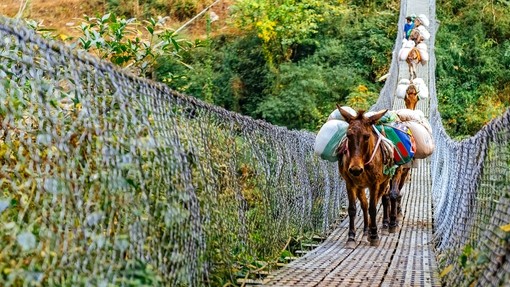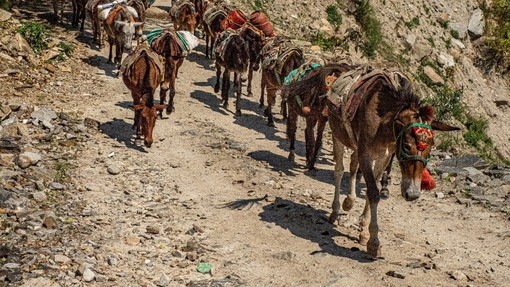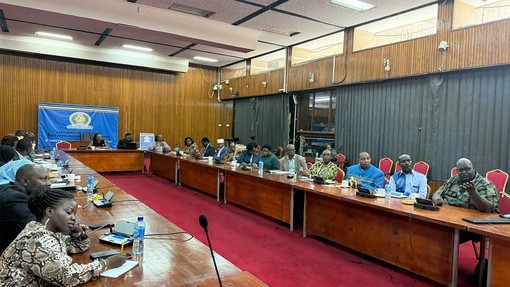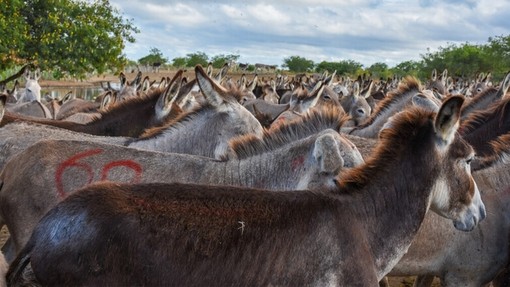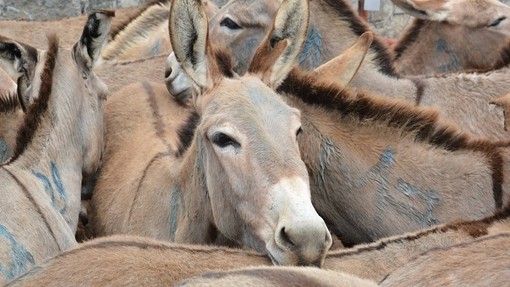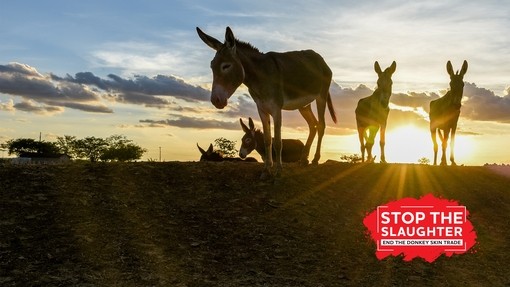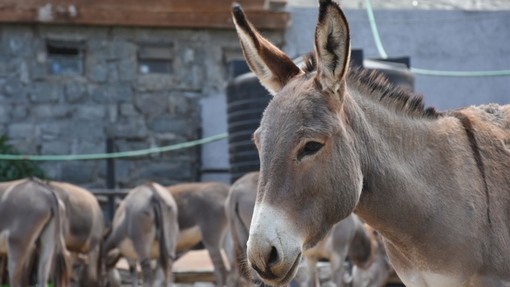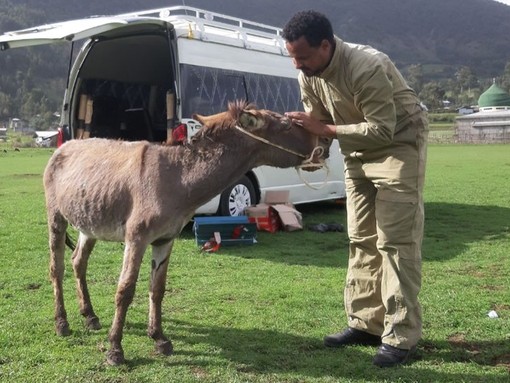
World veterinary day 2025
Nowhere is this year’s theme for World Veterinary Day “Animal Health Takes a Team” more evident than in the growing movement to protect Africa’s donkeys – animals that are so much more than beasts of burden; they are the backbone of rural livelihoods, family incomes, and local economies. Yet, these important animals are under constant threat from the devastating donkey skin trade, driven by demand for ejiao, a Traditional Chinese Medicine made from donkey hides.
Across the continent, veterinary teams are uniting—across institutions, sectors, and borders—to defend donkeys and the people who depend on them. This year, we honour two major milestones that show just how powerful teamwork can be when animal health, welfare, and preservation are at stake.
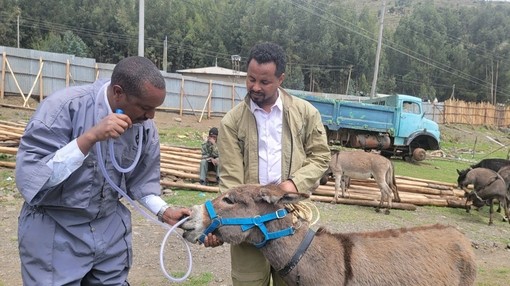
A national honour for veterinary teamwork in Ethiopia
In a landmark moment, The Donkey Sanctuary received a Medal of Recognition and Certificate of Honour from the Ethiopian Veterinary Association (EVA) at the end of last year for its long-standing commitment to veterinary services and donkey welfare.
Presented during EVA’s 50th Golden Jubilee and 37th Annual Conference at the African Union Headquarters in Addis Ababa by Dr. Fikru Regassa, state minister for the Ministry of Agriculture, this award recognizes the collaborative effort between The Donkey Sanctuary, local veterinary institutions, and community-led projects to improve the lives of donkeys.
“This recognition is not only an honour for The Donkey Sanctuary,” said Fegegta Lemma, The Donkey Sanctuary Country Director for Ethiopia, “but a testament to the transformative power of partnership and shared values in animal welfare. We remain committed to supporting the veterinary sector in Ethiopia to ensure every donkey lives a life free from suffering.”
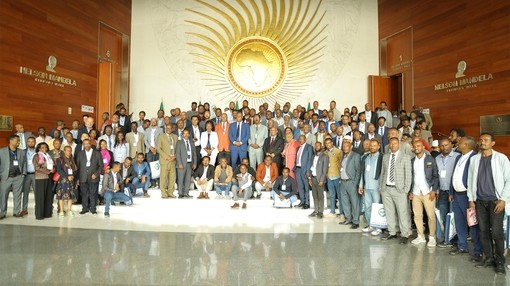
Through exhibitions, joint keynotes, and scientific presentations at the conference, The Donkey Sanctuary showcased its work alongside key partners like Addis Ababa University College of Veterinary Medicine and Agriculture, Alage Technical and Vocational Training College, and Ripple Effect International Ethiopia, highlighting how donkey welfare contributes to the broader One Welfare approach—where animal, human, and environmental wellbeing are interconnected.
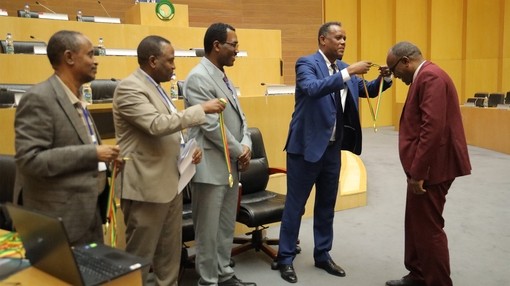
Universities, professional associations, NGOs and research institutions also came together to discuss veterinary services in Ethiopia in the coming 50 years and the role of veterinary professionals and EVO in light of global developments and the One Welfare agenda. In this session, Dr Asmamaw Kassaye, Welfare Lead at The Donkey Sanctuary, in coordination with other delegates emphasised that animal welfare is no longer a luxury in Ethiopia and focused on the need to intentionally include working equids in veterinary services, in light of their contribution to communities.
The event and award will undoubtedly bolster efforts to forge stronger partnerships and elevate the health and welfare of donkeys and mules on the development agenda in Ethiopia.
Kenya vets take a stand against the donkey skin trade
In Kenya, the collective voice of the veterinary profession grew louder this month as the Kenya Veterinary Association (KVA) officially adopted a position paper calling on the government to enforce a total ban on the commercial slaughter and export of donkey skins.
The paper was presented by Obadiah Sing’Oei, Programme Manager and Clinic Lead at The Donkey Sanctuary Kenya, as part of KVA’s technical committee on Animal Welfare. Its adoption marks a watershed moment: all veterinarians in Kenya now stand united in opposing the skin trade.
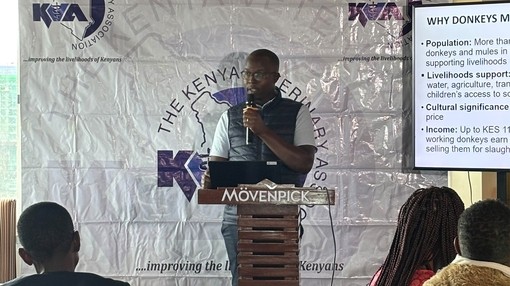
“Donkeys are more than animals in Kenya – they are lifelines for families, especially in arid and semi-arid lands,” said a KVA spokesperson in the statement. “The donkey skin trade undermines food security, public health, and the cultural identity of entire communities.”
The KVA noted that between 2016 and 2019, Kenya’s donkey population dropped by more than 40%, driven by demand for skins. The statement emphasized that illegal slaughter, theft, and smuggling continue to threaten communities and animals alike— in violation of Kenya’s constitutional duty to the African Union’s ban in February 2024 on the slaughter of donkeys for their skins.
The association also cited a range of harms from the trade, including fraudulent meat sales, community trauma from donkey theft, and violations of environmental protection.
The Donkey Sanctuary veterinary team attended the KVA Conference in Kisumu this week to share this landmark paper as a key advocacy tool that will empower vets and policymakers to push for lasting change. The annual conference brings together veterinary professionals to celebrate and discuss key issues in the sector.
“Vets must stand together against the trade because we are responsible for protecting animal health and welfare,” said Obadiah. “Our oath compels us to relieve suffering and serve the greater good.”
Why vets matter now more than ever
In Africa, donkeys are not just working animals—they are essential members of countless households, helping families fetch water, transport goods, and earn a living. Their health and survival affect everything from women’s empowerment and children’s education to water access and local trade.
Veterinary professionals are uniquely placed to influence animal welfare policy, drive grassroots change, and stand up against exploitation. They are trusted, trained, and connected to both the communities they serve and the systems that govern animal health.
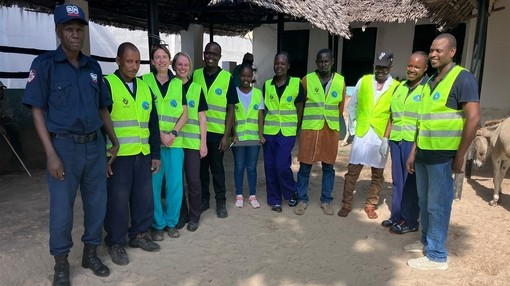
From Ethiopia to Kenya and beyond, The Donkey Sanctuary’s work has always been rooted in partnerships—with government bodies, local NGOs, veterinary associations, academic institutions, and community leaders. As one team, we are building a future where donkeys are valued, protected, and given the care they deserve.
This World Veterinary Day, we celebrate the collective strength of Africa’s veterinary community—and the many teams that make animal health and welfare possible.
Find out more about our work and partnerships in Africa
Discover moreShare this page
Tags
- News

